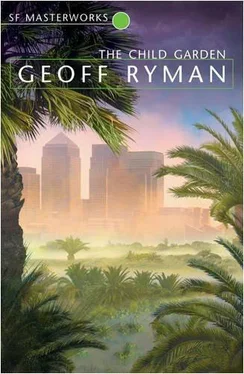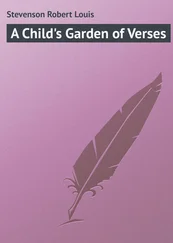Milena explained what she had done, and Rolfa appeared to be unmoved. Rolfa threw bits of her sandwiches to the ducks on the water. Overhead a flight of greylag geese passed, on their way to the Thames estuary from Iceland. The world had been saved.
Rolfa watched the geese overhead. ‘Everything moves,’ she said. ‘You wonder how it all knows where to go. Einstein wondered how birds knew where to migrate to. He thought they might follow lines of light in the sky. He saw everything as lines of light. That’s how he was built. So we don’t really know how he moved, either. Any more than the birds.’
Rolfa turned and flicked one of her grins towards Milena, as if apologising for what she had just said. ‘Thank you for trying,’ said Rolfa. ‘But I really don’t mind the silence.’ She was admonishing Milena, ever so gently. ‘The music comes out of the silence. I don’t mind if it goes back in. We come out of the silence…’ Her voice trailed off and she traced an arch with her hand. We go back into the silence too.
What is she saying? thought Milena. That she will go away?
‘We have a year, Rolfa.’
‘But we don’t have any food,’ said Rolfa. She threw the last morsel of bread to the ducks. They began to walk back towards the bus stop.
And suddenly Rolfa turned and attacked a rose. She snatched the stem despite the thorns and twisted it, breaking it off. Maybe it was the clumsiness, maybe it was the anger, but Milena was shocked without quite knowing why.
Rolfa turned, and holding the rose perfectly upright, gave it to Milena. She said something slurred and embarrassed. It took a moment for Milena to realise that she had said, ‘A rose for a rose.’
She shouldn’t have been able to do that, thought Milena. That is a public rose. If Rolfa had been anyone else, the viruses would have stopped her taking it. Rolfa is immune as well.
Milena turned the rose round and round in her hand. It was an old-fashioned rose, a very pale pink marbled with magenta. Rosa mundi, whispered the viruses. The petals had gone brown at the edges and had curled back to reveal a fresher core. It must have been recently watered by the gardeners. Fat pearls of water clung to it. Milena thought she ought to be embarrassed being seen walking with a stolen, public rose. Then she found she didn’t care, and carried it boldly. It bobbed on its long stem as if made out of lead, as if heavy with meaning. The public rose was a private valediction.
On the bus back home, Rolfa’s face was smiling, sad and faraway. Milena found herself dunking over and over: Rolfa don’t go, Rolfa don’t go.
Their little room at the Shell was cool and in shadow by the time they returned. September was declining rapidly. Rolfa won’t mind the winter, thought Milena, she’ll like the cold. If she’s still here, said another part of her mind. Milena went up onto the roof of the Shell to sunbathe, to kill her hunger pangs. Cilia brought Rolfa some soup and sausages. Cilia slipped them both into the Zoo to see Madam Butterfly. Rolfa no longer could buy tickets. Her smile was rapt, with the music, with the singing, with the staging, and her eyes were famished and glistening. If only they had let us be ourselves, Milena thought.
The next day Milena tried to rejoin Love’s Labour’s Lost.
She was told at one of the information desks that the director had died. Quite suddenly. Thirty-five. Time-expired. The cast were in mourning. They had asked to have the production discontinued. They didn’t want to work with anyone else. They can’t face going back, thought Milena. They can’t face going back to sleepwalking Shakespeare.
It was just like the play, at the end. Welcome Mercade, Mr Death. You interrupt our merriment. The King your Father is…
Dead, for my life.
It’s a design flaw, thought Milena. We shouldn’t have to the. She thought of the director, called him Harry in her mind. She remembered his feverish eyes. You knew you were going, Harry. This was your last leap. A lifetime of sleepwalking, of making other people sleepwalk, broke you. And then you were free. Harry, if I ever direct a play, she promised him, I will do it as you did.
And they are not going to break me.
Milena did not go back to her chilly room. She walked on, up the stairs, to the upper floor of the Zoo.
Out of the silence, into the silence.
She was going to talk to the Minister, before time.
‘Oh yes, Ms Shibush,’ said the sleek young man, smiling. ‘I’ll go ask.’ He went through a door.
Milena sat down. A row of Postpersons sat next to her, staring ahead with expressions of perfect peace. Lined up like Buddhas in a temple. Their conscious minds were fully occupied with the records of the Zoo. But what of underneath? thought Milena.
Her legs jiggled up and down with nerves. Heather had reached the end of Volume One, the only one that Marx had finished himself. She was fighting against the ending, reading notes and appendices, reading quotes in their original language. She was re-reading the prefaces to all the different editions. It was as if she would the when she finished.
I am ready to welcome scientific criticism.
I don’t really know you, Heather, thought Milena, I only know a virus. You may have loved, you may have been happy.
As far as the prejudices of what is termed public opinion, to which I have never made any concession…
You were dedicated. You were formidable. You gave your life away. Do your motives matter?
… I shall continue to guide myself by the maxim of the great Florentine:
Sequi il tuo corso, e lascia dir le genti.
Follow your own bent, no matter what people say.
Marx quoting Dante. Heather went on to read the next preface.
As Heather read, Milena thought of Rolfa and the wellspring of music in her, and of the paper from the Vampires, and of what she was going to say to the Minister, and she found that she had no idea.
‘I’m tired,’ she said aloud.
Marx could not enjoy the pleasure of preparing this third edition for the press.
The sleek young man came out again, asked one of the Postpeople to go in, and said to Milena, ‘A few minutes, Ms Shibush. Are you thirsty? Can I get you something?’
So I am in favour, Milena thought, but the thought was bleak. The young man tried to engage her in conversation. It was his job to know what was going on. His combed-back chestnut hair and his busy black and orange shirt all annoyed Milena. His spectacles annoyed Milena; spectacles were a Vampire affectation. Behind the flat resin lenses were the goggle-eyes of a cornea regrowth.
Milena answered his questions with yes or a no, or a yo — a Vampire answer that could mean sometimes or maybe. Yes, she was an actress. Yes, the music was very good. Was she friends with the composer? Yo.
A door opened and the Minister himself asked Milena to come in. Milena followed him into his room.
That mighty thinker…
He slept there. His bed was behind a screen that was painted with green streaks to represent reeds by a river. The walls were covered in cloth that was also decorated with reeds, and a large black sketch of a heron. There was a picture of Marx on the wall. Milena looked at the eyes. They would have been brown and soft. There was a picture of Mao at 25, and of Chao Li Song, the hero of the Second Revolution.
The Minister wore khaki trousers and a khaki shirt. He was a very handsome man of Chinese extraction, with neat black hair, a neat smile, a neat moustache. Milena liked him. There was something informal and direct about him. He had an air of competence and balanced openness, the product of Party training. Was that a virus too?
‘Do you mind if my Postperson stays with us?’ the Minister asked Milena. ‘I like to keep accurate records.’
Читать дальше












